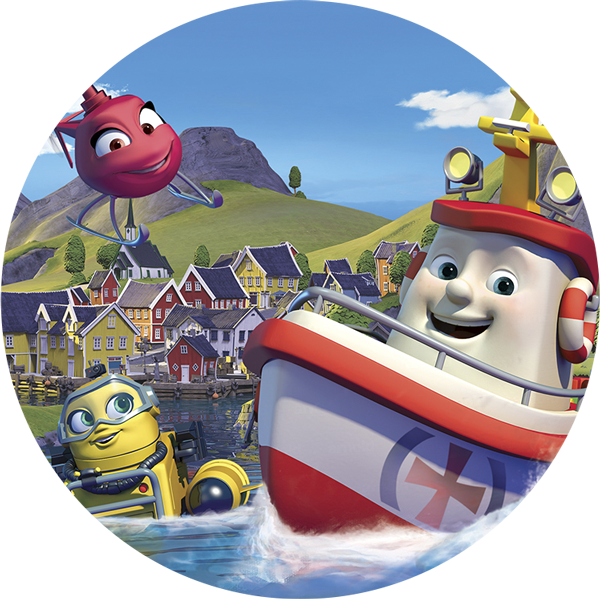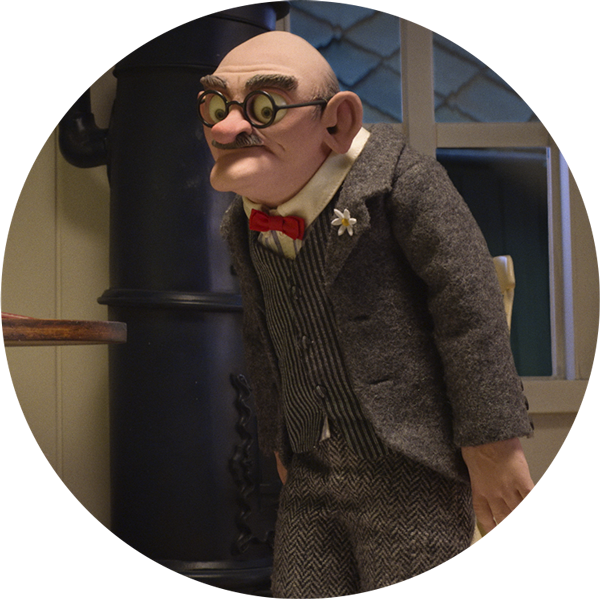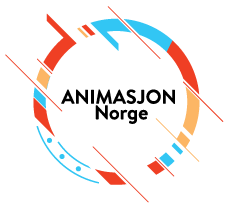
The Norwegian animation industry is as healthy as it has ever been, as highlighted by the release of four Norwegian animated feature films in cinemas in the third quarter of 2018. Local producers are also feeling the benefits of growing collaboration with neighbouring countries in the Nordic region of Europe.
Strong links in the Nordics
The Nordic Animation network, founded in 2018, has further strengthened links between Norwegian producers and production partners in Sweden, Denmark, Finland and Iceland. Among its supporters is the Norwegian Film Institute (NFI) and the Nordisk Film & TV Fond, both of which are headquartered in Oslo.
Norwegian animation producers, of which there were around 15 operating in Norway in 2018, have also moved to establish their own group within the Norwegian producer’s association Virke to support each other. This comes as talks with bodies such as the NFI and the Norwegian Cultural Ministry are ongoing with regards to lobbying the Norwegian government to increase support for the local animation industry.
It is widely considered among local producers that the Norwegian animation industry has enormous potential for growth, however one issue is that there is a lack of awareness outside of the industry that animation has different funding requirements compared to live action content.
Currently, there are no specific initiatives to provide funding for animation in Norway. However, the NFI frequently grants funding for the development and production of animated shorts, documentaries, features and series. Meanwhile, despite Norway not being part of the European Union, Norwegian producers are still able to receive funding from bodies such as Creative Europe. This is as a result of Norway’s Ministry of Culture paying a yearly fee to have access to the MEDIA programme via the European Economic Area.
In order to make Norwegian animation producers more attractive coproduction partners, there are growing calls to increase the budget for the current cash incentive scheme that provides a 25% automatic refund for local productions. This would be used alongside the coproduction funding from the NFI and regional funds to ensure more animated content is made in Norway.
The service and minority coproduction work this could potentially bring in for the country’s animation producers would help grow collaborative links across borders and provide continuous work for artists and studios.
Pressure on local broadcasters
It is also hoped that the government will begin to put pressure on major broadcasters such as public broadcaster NRK and commercial broadcaster TV2 to invest more in domestic animation production. Competition from US-based but global SVoD players such as Netflix may also result in traditional broadcasters commissioning more animated content from local producers in order to retain viewers.
Expertise in adaptations, features and shorts
Norwegian animation producers have a long history of adapting children’s books and brands for features and series. This has resulted in projects such as the Louis & Luca trilogy of feature films, based on the work of Norwegian writer and illustrator Kjell Aukrust and directed by the country’s most experienced animation director Rasmus Sivertsen.
Overall, there are more financial incentives for Norwegian producers to focus on feature films compared to TV series, however notable successes to have originated out of Norway in the latter format include Elias: the Little Rescue Boat and Ella Bella Bingo.
Norway also has relatively high levels of production of animated shorts, which have showcased local producer’s ability to produce animation in a variety of styles and techniques, from 2D, to 3D CGI to stop-motion. Among the country’s acclaimed short film directors are Torill Kove, who won the Academy Award for Best Animated Short with The Danish Poet in 2007.
Meanwhile, the shift towards on-demand viewing that is so prevalent in the Nordic region has led to the emergence of new content providers in the digital space such as Viaplay, which may go on to become active clients for animation producers in future.

The Norwegian animation industry is as healthy as it has ever been, as highlighted by the release of four Norwegian animated feature films in cinemas in the third quarter of 2018. Local producers are also feeling the benefits of growing collaboration with neighbouring countries in the Nordic region of Europe.
Strong links in the Nordics
The Nordic Animation network, founded in 2018, has further strengthened links between Norwegian producers and production partners in Sweden, Denmark, Finland and Iceland. Among its supporters is the Norwegian Film Institute (NFI) and the Nordisk Film & TV Fond, both of which are headquartered in Oslo.
Norwegian animation producers, of which there were around 15 operating in Norway in 2018, have also moved to establish their own group within the Norwegian producer’s association Virke to support each other.
This comes as talks with bodies such as the NFI and the Norwegian Cultural Ministry are ongoing with regards to lobbying the Norwegian government to increase support for the local animation industry.
It is widely considered among local producers that the Norwegian animation industry has enormous potential for growth, however one issue is that there is a lack of awareness outside of the industry that animation has different funding requirements compared to live action content.
Currently, there are no specific initiatives to provide funding for animation in Norway. However, the NFI frequently grants funding for the development and production of animated shorts, documentaries, features and series. Meanwhile, despite Norway not being part of the European Union, Norwegian producers are still able to receive funding from bodies such as Creative Europe. This is as a result of Norway’s Ministry of Culture paying a yearly fee to have access to the MEDIA programme via the European Economic Area.
In order to make Norwegian animation producers more attractive coproduction partners, there are growing calls to increase the budget for the current cash incentive scheme that provides a 25% automatic refund for local productions. This would be used alongside the coproduction funding from the NFI and regional funds to ensure more animated content is made in Norway.
The service and minority coproduction work this could potentially bring in for the country’s animation producers would help grow collaborative links across borders and provide continuous work for artists and studios.
Pressure on local broadcasters
It is also hoped that the government will begin to put pressure on major broadcasters such as public broadcaster NRK and commercial broadcaster TV2 to invest more in domestic animation production. Competition from US-based but global SVoD players such as Netflix may also result in traditional broadcasters commissioning more animated content from local producers in order to retain viewers.
Expertise in adaptations, features and shorts
Norwegian animation producers have a long history of adapting children’s books and brands for features and series. This has resulted in projects such as the Louis & Luca trilogy of feature films, based on the work of Norwegian writer and illustrator Kjell Aukrust and directed by the country’s most experienced animation director Rasmus Sivertsen.
Overall, there are more financial incentives for Norwegian producers to focus on feature films compared to TV series, however notable successes to have originated out of Norway in the latter format include Elias: the Little Rescue Boat and Ella Bella Bingo.
Norway also has relatively high levels of production of animated shorts, which have showcased local producer’s ability to produce animation in a variety of styles and techniques, from 2D, to 3D CGI to stop-motion. Among the country’s acclaimed short film directors are Torill Kove, who won the Academy Award for Best Animated Short with The Danish Poet in 2007.
Meanwhile, the shift towards on-demand viewing that is so prevalent in the Nordic region has led to the emergence of new content providers in the digital space such as Viaplay, which may go on to become active clients for animation producers in future.

Animation Norway
Animation Norway (Animasjon Norge) was founded in 2018 to represent the interests of independent animation producers of film and TV series in Norway as well as to promote and support the development of the animation industry in Norway. It is a subgroup of The Norwegian Producer’s Association, which is part of Virke: The Enterprise Federation of Norway.


 Animation in Norway
Animation in Norway